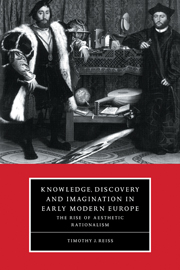Introduction
Published online by Cambridge University Press: 01 February 2010
Summary
Since time immemorial, or at least since the mythical, religious, and legendary tales of diverse antiquities, language and wisdom or knowledge have been accounted inseparable: whether through Mercury or Moses, Adam or Prometheus, Thoth, Hermes or Jahveh - whose Logos was both speech and ultimate wisdom - language and mind have been taken as mutual and simultaneous signs of one another. Language conferred wisdom; the power of speaking was also that of knowing. Mind was manifest in language; the latter no less than reason itself was the final index of humanity.
These are cliches, but against some such generalizations, distinctions may be made to historicize this relation of language and mind (especially where sixteenth-century European writers are at issue). Endlessly repeated, the commonplace coupling of rationality and language is not itself my question, though furnishing a backdrop. For the coupling has been diversely conceived in different places and times. Here, I am concerned with a time of conceptual change in Europe when to maintain the coupling at all seemed increasingly hard. When the issue was finally resolved, the resolution produced fundamental changes and developments in how the human condition and situation were understood (indeed in how they could be understood).
I wish to look at a precise moment in this history, starting in the last years of the 1520s. Here, a short aside on the issue of continuity/discontinuity will not be amiss.
- Type
- Chapter
- Information
- Knowledge, Discovery and Imagination in Early Modern EuropeThe Rise of Aesthetic Rationalism, pp. 1 - 16Publisher: Cambridge University PressPrint publication year: 1997



